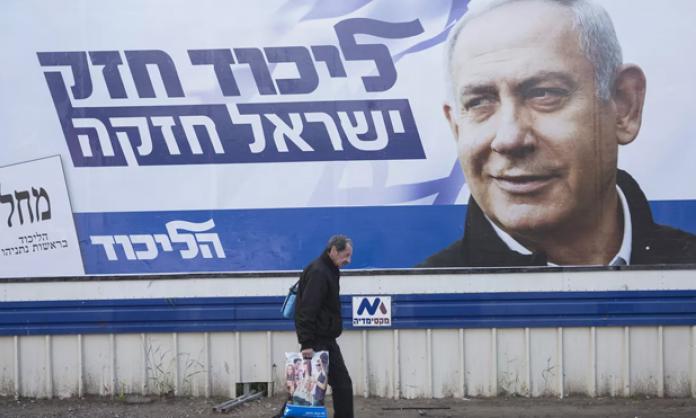Israeli prime minister Benjamin Netanyahu secured his fifth term in office on 9 April and said he intends to be “the prime minister of all citizens of Israel: right, left, Jews, non-Jews”.
A day later, public relations firm Kaizler Inbar claimed credit for dispatching 1,350 volunteers with cameras to intimidate Palestinian voters in an operation conducted in “deep and close partnership with the best people in Likud”, Netanyahu’s right wing ruling party.
“Thanks to us placing observers in every polling station we managed to lower the [Arab] voter turnout to under 50 percent, the lowest in recent years!”, the company boasted in a statement.
However, it was not voter intimidation that made Netanyahu’s victory a foregone conclusion. It was the lack of any serious alternative in an electoral contest in which Palestinians were punching bags for far right candidates.
Since his first victory in 2009, Netanyahu has tightened the Israeli siege of Gaza in collaboration with Egypt. In 2014, he waged war on Gaza’s 2 million besieged Palestinian residents, killing 2,200, a quarter of them children, and leaving tens of thousands homeless.
Netanyahu defended his government’s use of lethal force against weekly Palestinian peaceful protests over the last year, telling the Hebrew-language daily paper Israel Hayom: “More than 300 Palestinians have been killed near the border … We have used force wisely and powerfully”.
The prime minister also opposed a Palestinian state and told the paper of his determination to reach an agreement with the US that would maintain Israeli control over the West Bank and East Jerusalem without evacuating “a single settler”.
There are more than 600,000 so-called settlers living in the Palestinian homelands of the West Bank and East Jerusalem, which Israel has occupied and controlled since 1967, suffocating the national life of more than 2.5 million Palestinians. B’Tselem, the Israeli Information Centre for Human Rights in the Occupied Territories, notes:
“As of the end of 2017, there are 131 government-sanctioned Israeli settlements in the West Bank (not including East Jerusalem and settlement enclaves within Hebron). In addition, there were approximately 110 ‘settlement outposts’ located throughout the West Bank. The outposts do not have official government recognition, although many of them were established with governmental assistance.”
Read the article by Nick Everett in RedFlag.

